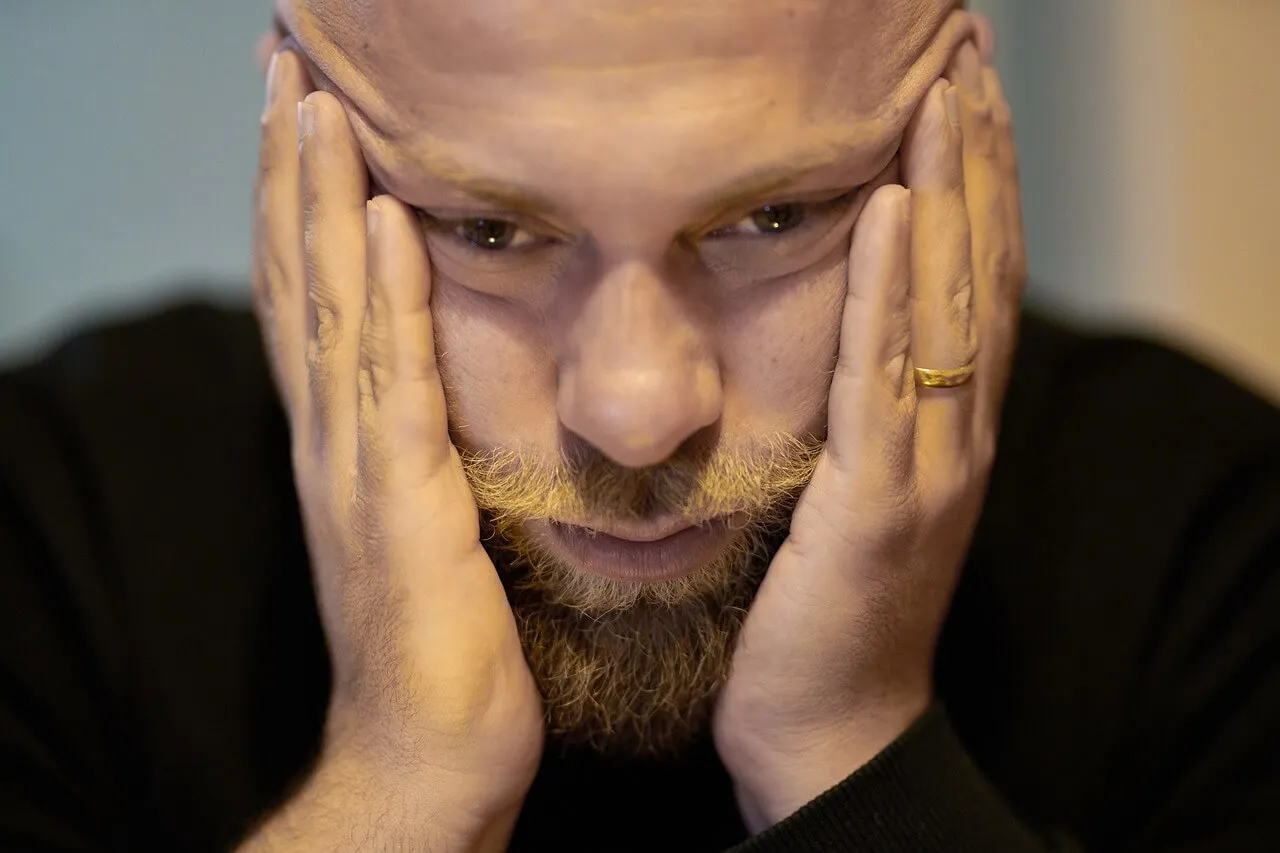Post-wedding Depression: How to Recognize and Overcome It

It’s commonly expected that the days and months following a wedding are some of the happiest in the life of a couple. We tend to believe that a sweet stage of the relationship is experienced at this time. You’ve finally tied the knot with the love of your life and you both face the exciting beginning of a shared journey. So why are you feeling so sad, listless, and disconnected? You may be going through post-wedding depression.
This concept doesn’t exactly designate a severe mood disorder, but rather a feeling of emptiness and melancholy that both men and women can experience after getting married. These feelings come on unexpectedly and can be difficult to recognize, accept, and transcend. That’s why we want to tell you more about this here.
Post-wedding blues: How does it manifest itself?
Each person is different and, therefore, the symptoms of the “post-wedding blues” may vary in each case. In general, the manifestations are similar to those of a depressive episode, but perhaps of lesser intensity.
Among the most common are the following:
- A feeling of emptiness, loneliness, and anguish.
- Constant sadness and tendency to isolation. The person may feel disconnected from his or her partner and even avoid emotional contact with him or her.
- Apathy and loss of interest. Nothing seems to cause pleasure or enthusiasm and the days become monotonous.
- Sleep and appetite disturbances.
- It’s common to experience a loss of energy or persistent boredom.
This emotional low takes place days, weeks, or months after the wedding and may last for a variable length of time depending on the case.

We think you may also enjoy reading this article: A Study Found a Link Between Obesity and Depression
Why does post-wedding depression occur?
It’s difficult to understand that a person can feel depressed when he/she would be living one of the best stages of his/her life and relationship. However, post-wedding depression is more common than we may think. Actually, there are several factors that contribute to its occurrence.
A feeling of emptiness after the wedding
For months, the wedding preparations have occupied your mind and your free time. There was so much to do…!
Your whole environment was looking out for you and the event, collaborating, and planning. Meanwhile, you and your partner shared magical moments choosing the flowers, the dresses, or the banquet menu.
And now it’s all over. You’re no longer the protagonist and life is routine again. You feel you no longer have a purpose and a strong sense of emptiness may set in.
Difficulties adjusting to the new status
Assuming the role of a married person can take some time and some difficulties or resistance may arise. Some may come to feel that they regret their decision, that they’re tied down or caged, or that they miss their single life.
Perhaps they don’t see their family or friends as much anymore or the pressure of commitment gets to be too much for them at times. Even if it’s a matter of perspective and they really do love their partner and want to be married, these thoughts and feelings can lead to a strong feeling of guilt.
Unfulfilled expectations
Other times, it’s the reality check that leads to post-wedding depression. Perhaps you had unrealistic expectations of what married life would be like, and when they’re not fulfilled, fear and sadness arise.
Perhaps you had idealized marriage and now you have to face the fact that there are fights, jealousy, or disagreements. Now you have to assume a daily routine, the differences of opinion about the housework or the lack of shared time may come to the surface.
That bubble in which you lived with your partner while you were planning the wedding has given way to the day-to-day with not-so-pleasant moments. Because of this, you may miss the previous stage.
Like this article? You may also like to read: How to Recognize Postpartum Depression and Treat it
The wedding was a patch, but the problem is still present
Finally, it’s also worth mentioning that sometimes the idea of getting married arises as a sort of desperate remedy to the problems that a couple has been dragging around for a long time. They try to cover up their doubts, fights, or differences with this leap forward, but when the wedding takes place and the honeymoon ends, the past problems are still there.

How to overcome post-wedding depression
If you feel that you’re going through post-wedding depression, stay calm. This doesn’t mean that something is wrong or that the marriage was a mistake.
There are some steps you can take to overcome this situation:
- Accept your feelings. At times, it can be difficult to identify symptoms and even more difficult to acknowledge what you’re feeling, but it’s important to allow ourselves this step. Don’t judge yourself, blame yourself, or hold back. Observe your emotions and accept them in order to transcend them.
- Change your perspective. Try to remember that the wedding was not the goal, but the beginning of the road. Be excited about the construction of this new stage as a couple. Start new projects and find new purposes, both individual and shared, and dedicate your time to what makes you feel good.
- Don’t neglect the significant people in your life. Being married doesn’t imply having to isolate yourself or renounce the rest of your roles. Allow yourself to develop inside and outside of your relationship and you won’t feel like you’ve lost anything.
- Talk to your partner. Explain how you feel and what you need. Communication will not only help you process your emotions, but will also strengthen the bond and avoid misunderstandings.
- Seek professional help if necessary. If your relationship has been troubled since dating or you feel that this melancholy is causing you great discomfort or interfering with your daily life, psychotherapy can be of great help.
All in all, post-wedding depression is quite common. It can appear at the least expected moment and tinge this beautiful moment with sadness or apathy. However, if you allow yourself to feel and if you communicate and focus on building this new stage, this discomfort will pass.
All cited sources were thoroughly reviewed by our team to ensure their quality, reliability, currency, and validity. The bibliography of this article was considered reliable and of academic or scientific accuracy.
- Livermore, Sierra (2022) “The New Bride’s Guide to Overcoming “Post-Wedding Depression”,” Family
Perspectives: Vol. 3 : Iss. 1 , Article 10.
Disponible en: https://scholarsarchive.byu.edu/familyperspectives/vol3/iss1/10 - Scott, A. M., & Stafford, L. (2018). An investigation of relational turbulence and depressive symptoms in newly married women. Personal Relationships, 25(1), 22–37
This text is provided for informational purposes only and does not replace consultation with a professional. If in doubt, consult your specialist.









